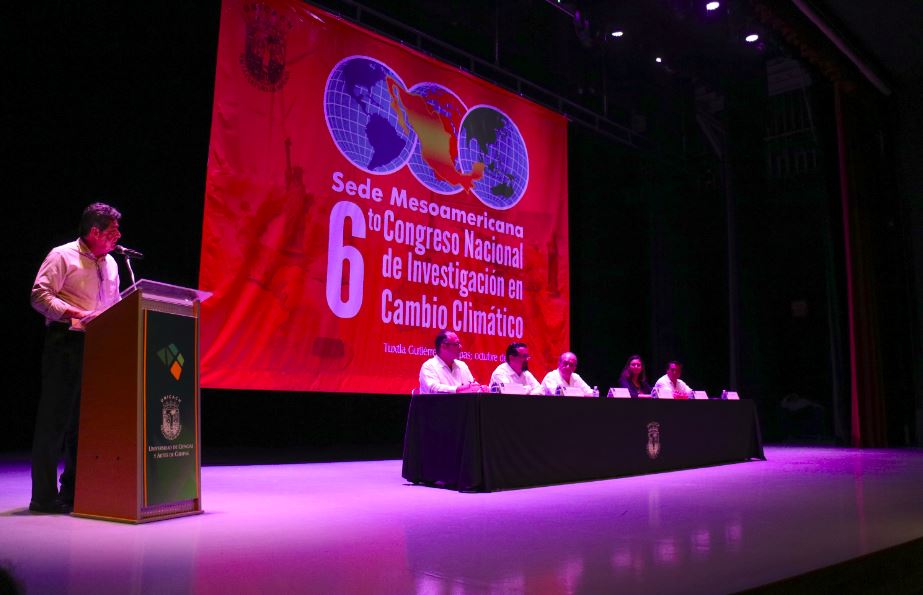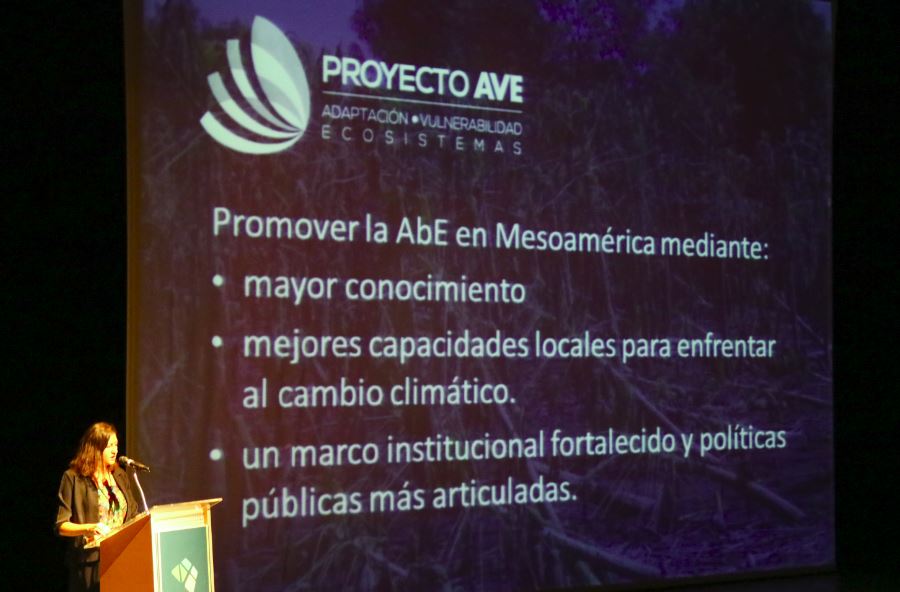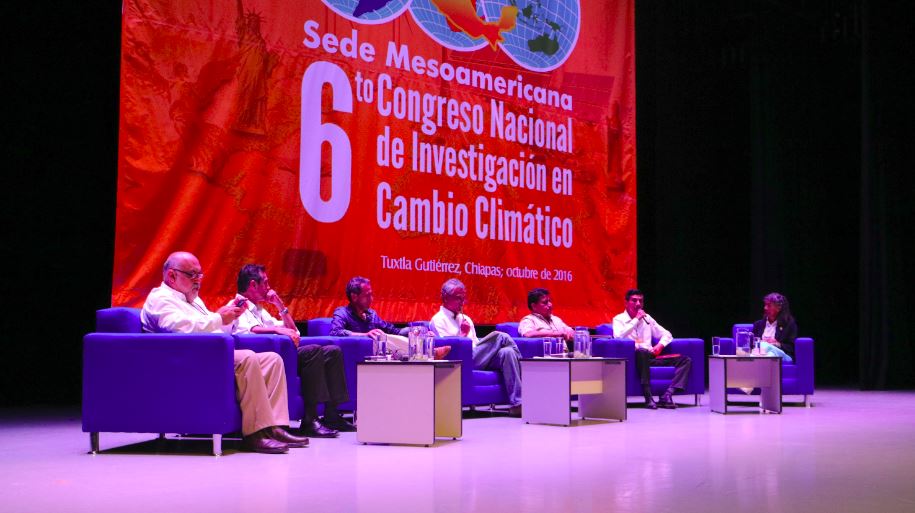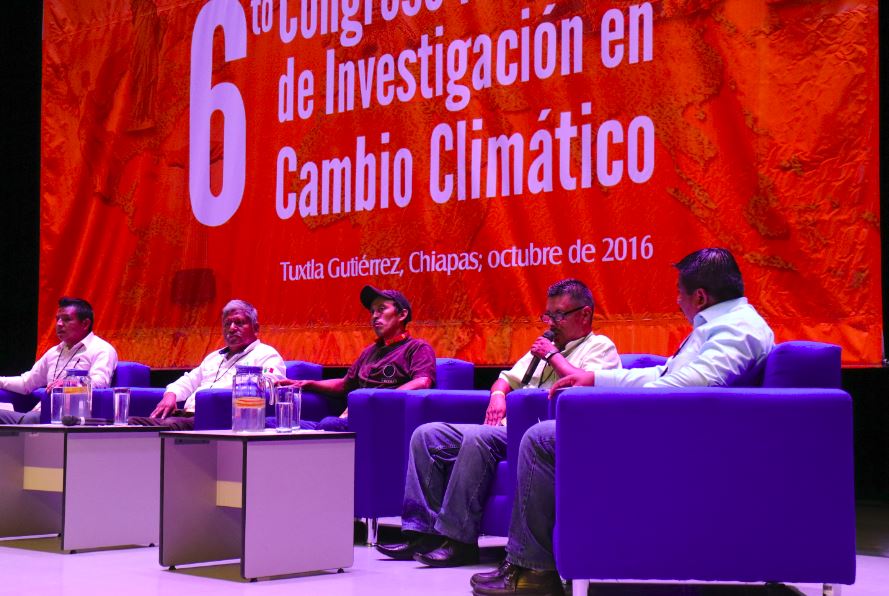Mexico Celebrated the 6th National Congress on Research in Climate Change at Universidad de las Ciencias y el Arte de Chiapas
This year the 6th National Congress on Research in Climate Change took place in the city of Tuxtla Gutiérrez, Chiapas. The 300 participants included representatives of government institutions, nongovernmental institutions and academia, students, and the general public.
Chiapas, Mexico, October 19, 2016. This year, the venue of the 6th National Congress on Research in Climate Change was Universidad de las Ciencias y el Arte (UNICACH) [University of Sciences and Art], in the city of Tuxtla Gutiérrez, Chiapas. The 300 participants included government institutions, nongovernmental organizations and academia, students, and the general public.
The event was opened by the Secretary of Environment and Natural History, Carlos Morales Vázquez; the Chancellor of UNICACH, Adolfo Guerra Pérez; and the Regional Officer of the International Union for the Conservation of Nature (IUCN), Marta Pérez de Madrid, who also coordinates Project AVE: Adaptation, Vulnerability and Ecosystems. For the first time, this congress included a lecture on nature-based solutions, presented by the IUCN, and a panel focused specifically on the experiences of organizations promoting adaptation in Chiapas, such as The Nature Conservancy and Pronatura Sur, IUCN members. Other discussion panels centered on adaptation to climate change, strategies, adaptation measures for food security, and ecosystem protection and water security, with additional lectures on mangrove management, international governance and climate change agreements, and other topics.
On the second day of the congress, activities included dialogue among community representatives about work in climate change adaptation taking place in their territories and how living conditions are improving through better use of ecosystem services. Panel members included Antonio Hernández Salas, community leader of Ejido La Azteca. For the past ten years he has been working on community forest development, microwatershed management and climate change, and other approaches. He talked about sustainable use of mesophilic forest, better management practices in cultivation areas, productive diversification, and harvesting non-timber forest resources. All of these activities are part of the ecosystem-based, climate change adaptation plan underway in the Cahoacán basin.
The aim of the institutions organizing the congress is to coordinate the work they are currently carrying out and provide free information for those attending the event, which was open to all.
Finally, the message will reach a greater number of people thanks to the intervention of Mexican media.
Organization of the congress was promoted jointly by UNICACH and Project AVE, supported by the Climate Initiative of Germany’s Federal Ministry of Environment, Nature Conservation, Building and Nuclear Safety.










